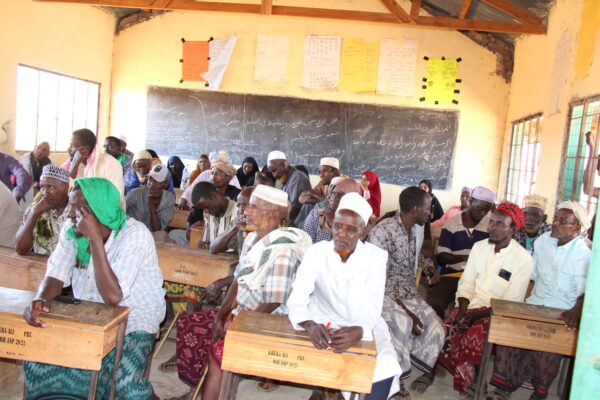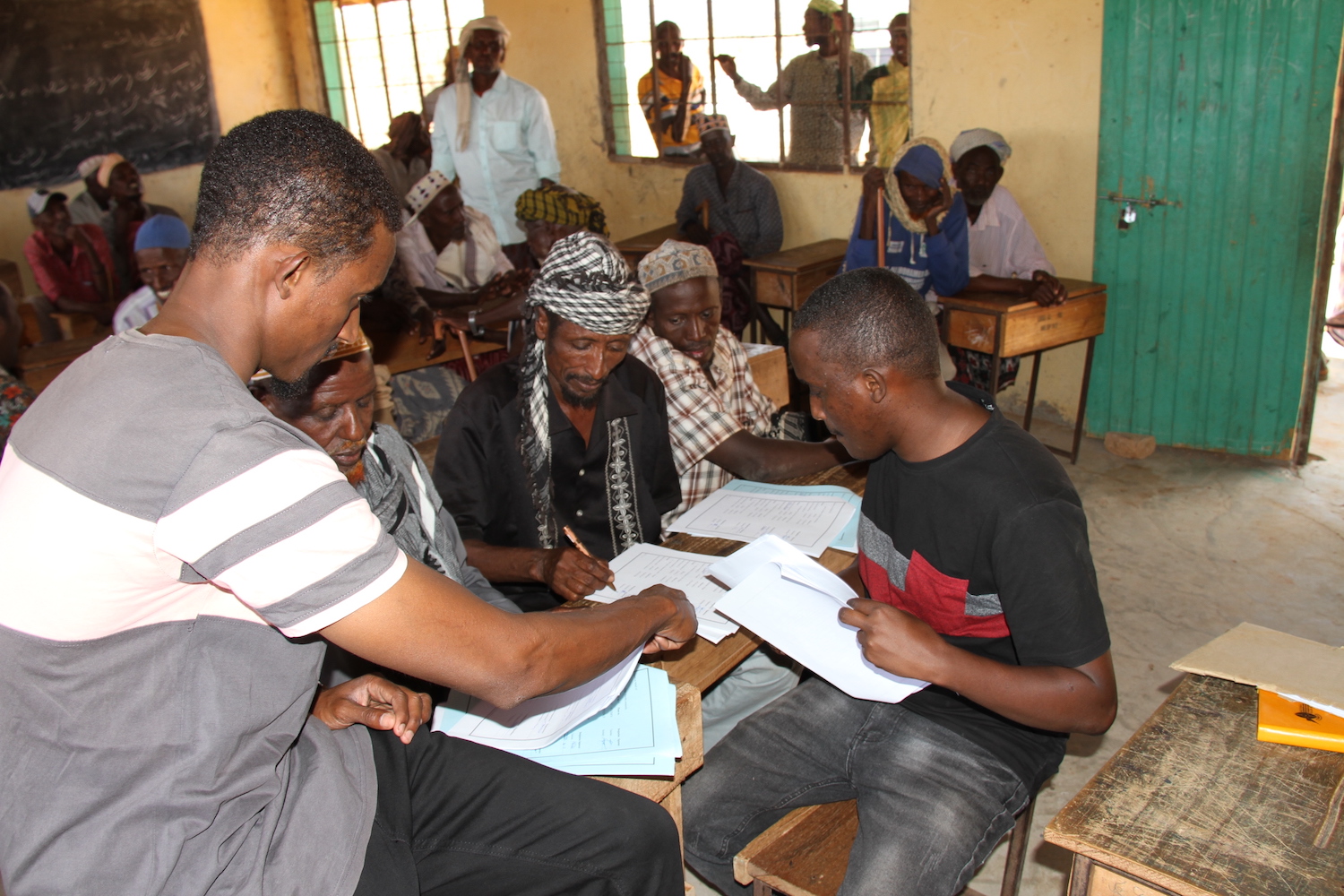Kenya: Building strong and sustainable communities through resource sharing
"Water is life; we do not have a permanent source of water. This village had a booming business when we had water in the pan. Livestock used to come to drink water from the pan, and in return, we used to get milk for our children and tea. Now that there is no water source, there is no business and no milk for our children. The town is a ghost town! Let our water pan be desilted." Abdi Abdirahman Abdille, Secretary of Jabi 2.
In the arid landscapes of Mandera, a recurring challenge arises in pastoral communities- conflicts stemming from the scarcity of vital resources like grazing land, water, and firewood. These conflicts, particularly evident in the Rhamu-Jabi corridor of Mandera North, where the Degodia, Garre, and Murulle clans coexist, highlight the urgency of sustainable resource-sharing practices.
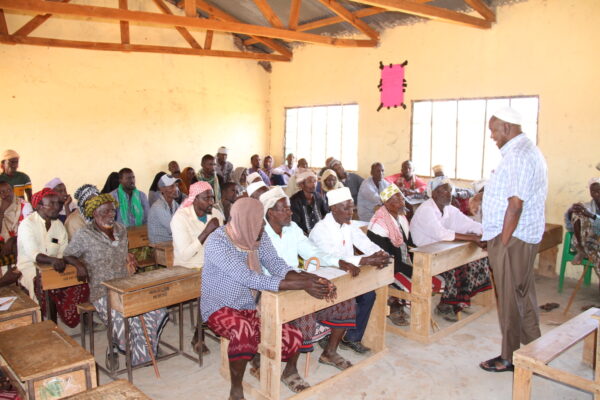
To improve resource management and promote equitable resource sharing, the National Cohesion and Integration Commission (NCIC) and Interpeace Kenya peacebuilding programme, funded by the Federal Foreign Office of Germany, established triangular dialogue spaces along the Rhamu-Jabi corridor. These spaces facilitated dialogue among three clans, the Degodia, Garre, and Murulle clans, eventually culminating in the signing of an inter-community resource-sharing agreement.
The dialogue spaces were designed and divided into two segments. The first included Isakora, Shangala, Awara, Waldiri 1, and Waldir 2 villages, while the second focused on Mubarak, Tosi, Jabi 1, and Jabi 2 villages. Each of these villages represented a unique facet of the Degodia, Garre, and Murulle clans, ensuring a diverse representation to forge unity, mend community relations, and localise peacebuilding efforts.
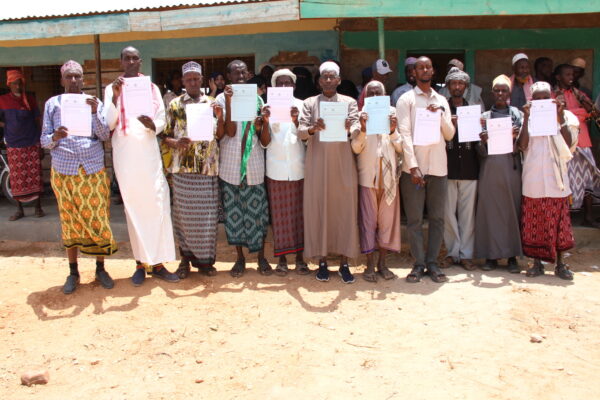
To ensure the sustainability and stewardship of these dialogue spaces, a "Shura" (Consultant) committee was formed within each village. Comprising youth, women, and elderly representatives, this committee held the mantle of addressing and resolving conflicts at the grassroots level. Comprehensive training equipped Shura committee members with skills like conflict resolution to effectively facilitate dialogue spaces. The Shura members further solidified their governance structure, electing chairpersons, vice chairs, and secretaries to represent the interests of the two dialogue spaces.
Through a series of dialogues, pressing resource-sharing issues emerged, notably concerning firewood collection and the dearth of water due to the absence of a functional dam or borehole. The committee’s deliberations explored options such as constructing a new dam or engaging the Jabi 2 community to share their existing dam, which only required desilting. In a show of unity, the committee decided on the latter, fostering a spirit of cooperation. On the front of firewood, a consensus emerged to permit the collection of dried wood while discouraging the felling of fresh trees.
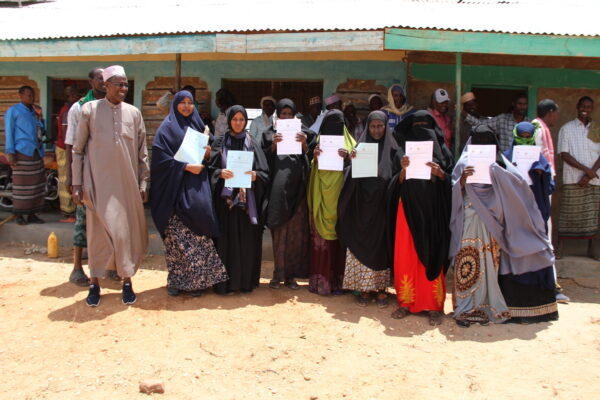
Following regular meetings by the Shura committees to discuss prevalent challenges and strategies for resolution, the necessity for collective resource-sharing initiatives became apparent. This prompted the peacebuilding programme to facilitate an inter-community meeting on resource sharing. The two-day forum gathered representatives from Mubark, Towsi, Jabi 1, and Jabi 2 villages, including dialogue space committee members, clan elders, local chiefs, the County Chief Officer for Community Cohesion, and various peacebuilding actors.
In a significant stride towards harmony, these communities crafted a resource-sharing agreement. The pact pledged peaceful coexistence and committed to information sharing to stop future conflicts. A pivotal breakthrough emerged as the three communities consented to desilt the dam at Jabi 2 and mutually share its water.
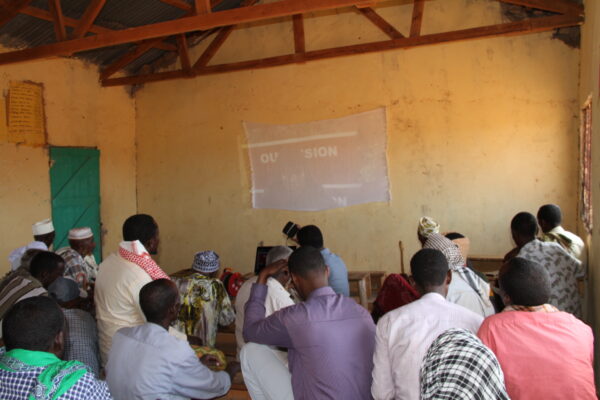
In addressing the significance of resource sharing among the Degodia, Garre, and Murulle, the committee leaders of the dialogue spaces had this to say:
What we need is water. We don't care where it comes from. Ethnicity and politics should not deny us water. Our children suffer because of thirst." Ali Raol Bulle, Chairman, Jabi 2.
"All the four villages need water. This pan in Jabi 2 will serve us all. If the fear is in the management of the water pan, let the people of Jabi 2 manage it, and the rest of the neighbouring villages will get the water." Ibren Ibrahim Abdi, Chairman, Dialogue Space 2.
This journey towards resource sharing stands as a testament to the power of dialogue, collaboration, and shared responsibility in building a sustainable and harmonious future for the people of Mandera.
